Ghana’s beads come of age…by PaJohn Dadson
Ghana’s beads come of age…by PaJohn Dadson
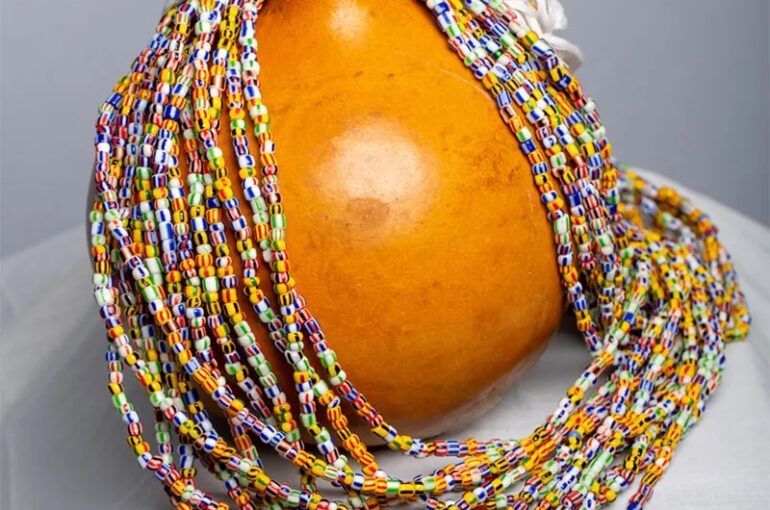
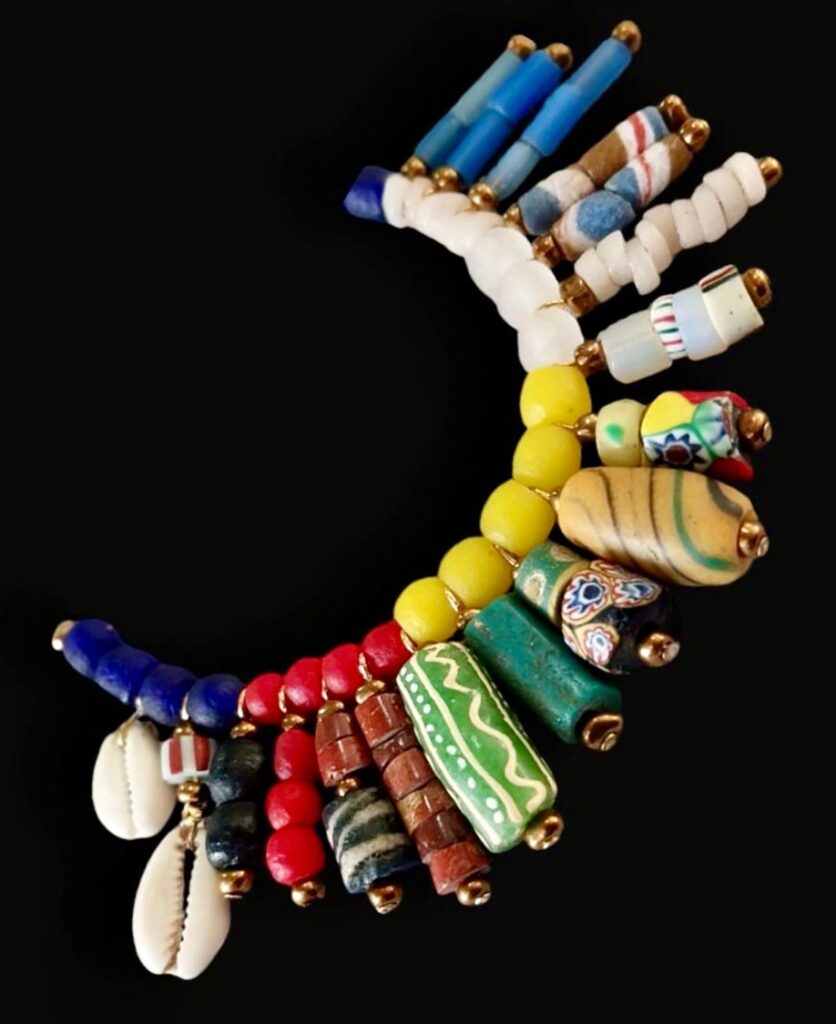
Preserving cultural practices, as has been demonstrated by the Ghana Beads Society over the last three decades, allows communities to maintain a connection with their roots, strengthening their sense of self and contributing to a positive and stable societal fabric. This connection, in turn, promotes a great sense of community. In commemorating their 30th anniversary, PaJohn Dadson looks at the society’s influence in shifting perceptions of beads from being mere fancy heirloom accessories to thriving economic mainstays for many traders.
These are the three parts of life, as espoused by African American actor Denzel Washington. “The first part of your life, you learn. The second part, you earn; and the third part, you return.” Have more profound words ever been spoken?
Learning about past techniques and practices is crucial in understanding current events and, by extension, a people’s survival! Once you learn, you earn knowledge so as to be able to contribute to your lineage’s ‘cultural heritage’.
Then, in the third part, you return the wisdom and knowledge you have gained to your community to help in the protection and conservation of the underlying practices, so the next generation can then also learn from you.
This is the essence of life, and the cycle that keeps societies going.
The very essence of conservation protects the community through the responsible use of resources available, helping in the preservation of what is inherently ours, our cultural heritage!
Beads, made from teeth and bones, reported to have been worn by Neanderthal as pendants, might be the oldest art form known to man. Besides being a form of art, it is quite a well-known fact that beads have been used by almost every civilisation across time as a trade currency or symbol of social or spiritual status.
For years in Ghana, Krobo beads have been much more than just a form of currency or a decoration item. There have been a lot of traditions intertwined with bead usage, including the rites of passage ceremonies and holistic healing. Beads are also an important part of the family heirloom, and considered as the vessel for the knowledge and wisdom of family ancestors.
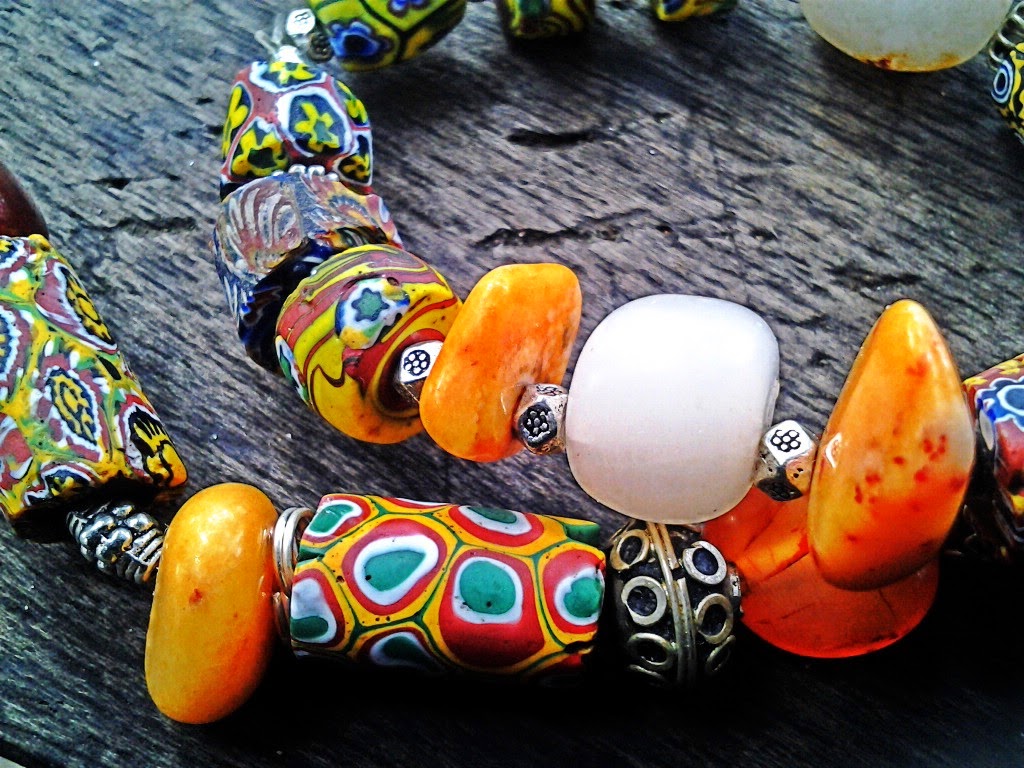
In spite of their importance and demand, bead production has continued to remain a cottage industry. Though still on a small scale, they are fast becoming a major mainstay for many traders as well as collectors.
Mainstreaming the merchandising of beads as an important industry is what informed the founding charter members to establish the Ghana Beads Society (GBS) as an institution dedicated to the preservation and promotion of Ghanaian beads, and the recording of Ghanaian bead culture.
It was in 1993 that the founding members, Chief Odonkor, President; Kati Torda Dagadu, Executive Secretary; Prof. Joe Nkrumah, Treasurer; Mr. Joe Gazari, Financial Secretary; together with the late Mrs. Victoria Baeta, Prof. Ablade Glover, Mrs. Joyce Koranteng and Mrs. Bonnie Brown envisioned a body that would research and promote local bead production and connection with other bead societies, historians and collectors in the effort to improve knowledge of bead production techniques and practices.
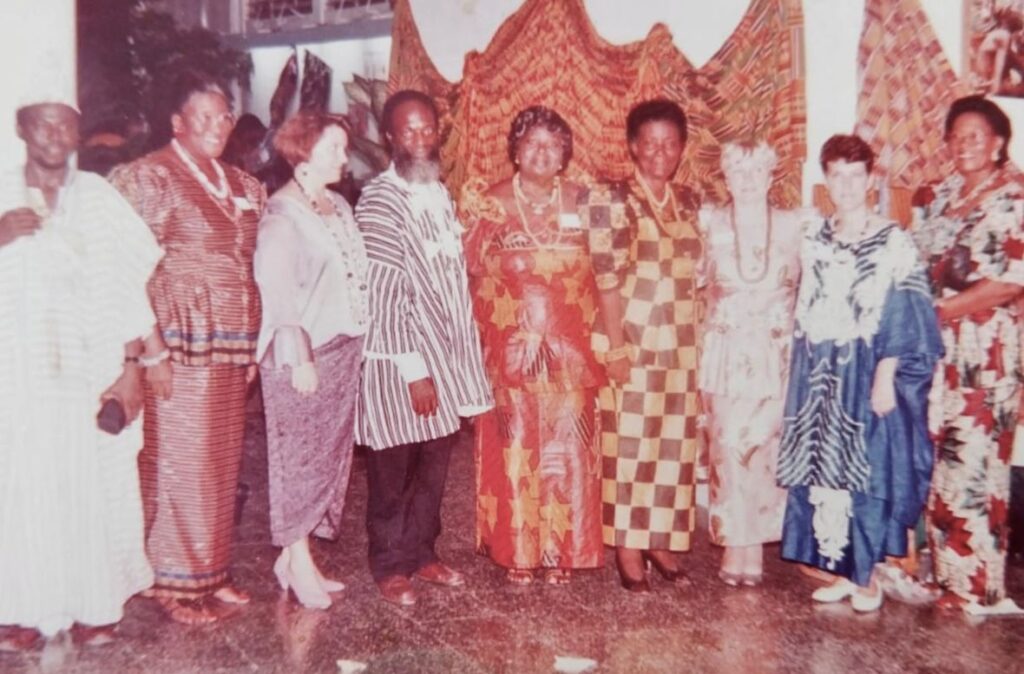
Then in May 1994, the Ghana Bead Society was founded as a passion project; the first bead society in Africa, with an aim to consolidate a social platform formulated around beads and Ghanaian bead culture.
Thirty years on, the society has successfully grown a dedicated membership with volunteers who contribute their time and effort to keep the society active, educating enthusiasts and the community interested about the fascinating subject of beads. Their contributions have elevated the value and relevance of beads to Ghanaian society.
Today, the Ghana Bead Society has the capacity of a directorate that promotes and facilitates connections between international collectors, and local beads producers, merchants and dealers, as well as visitors interested in various aspects of the Ghanaian bead culture.
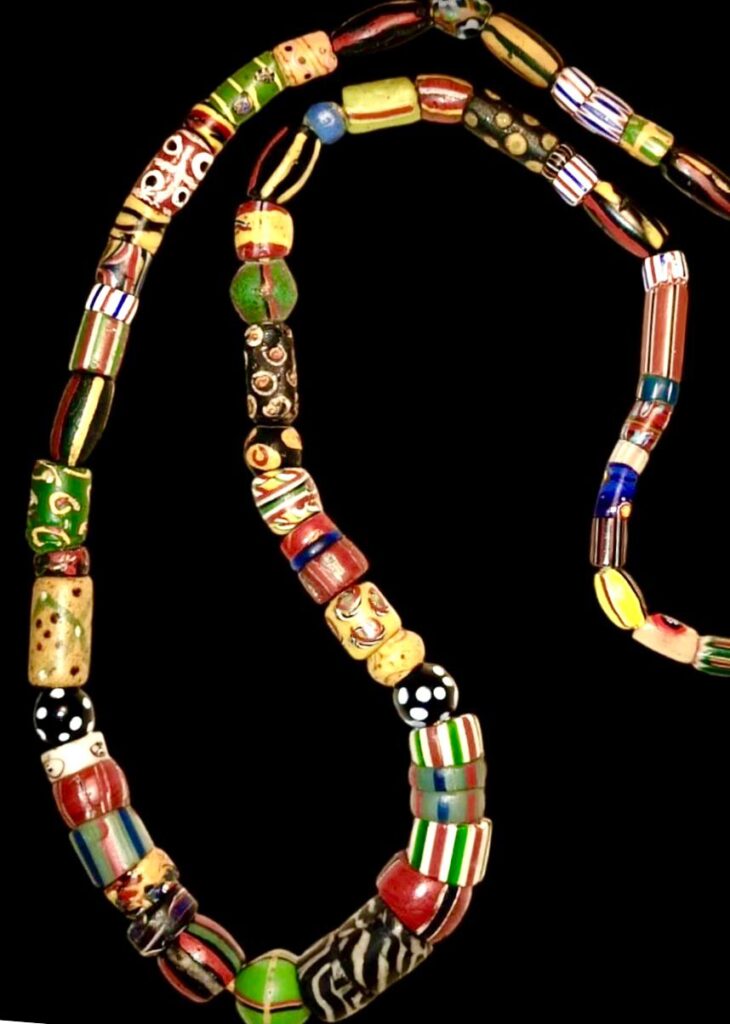
Over the years, the GBS has promoted a variety of events and avenues that have brought the necessary attention to the beads culture. They have been involved in a number of major exhibitions, paramount among them being the landmark ‘Ghanaian Beads – a living tradition’ at the National Museum, and ‘Ghanaian Beads – Royal Regalia’ at the National Theatre. These functions have included a display of a former First Lady’s collection of beads, with traditional royalty attending in full regalia.
Photographic exhibitions, including educational and stringing projects for children, as well as a good number of fashion shows held over the years have featured local beads and bead designers; the largest being the show to commemorate the society’s 10th anniversary. It was a sparkling show, staged at the most fitting of ambiences against the backdrop of the silhouettes of aben hyenfo (horn blower) fountains at the Kwame Nkrumah Memorial Park in the presence of royalty, dignitaries and numerous guests from all walks of life.
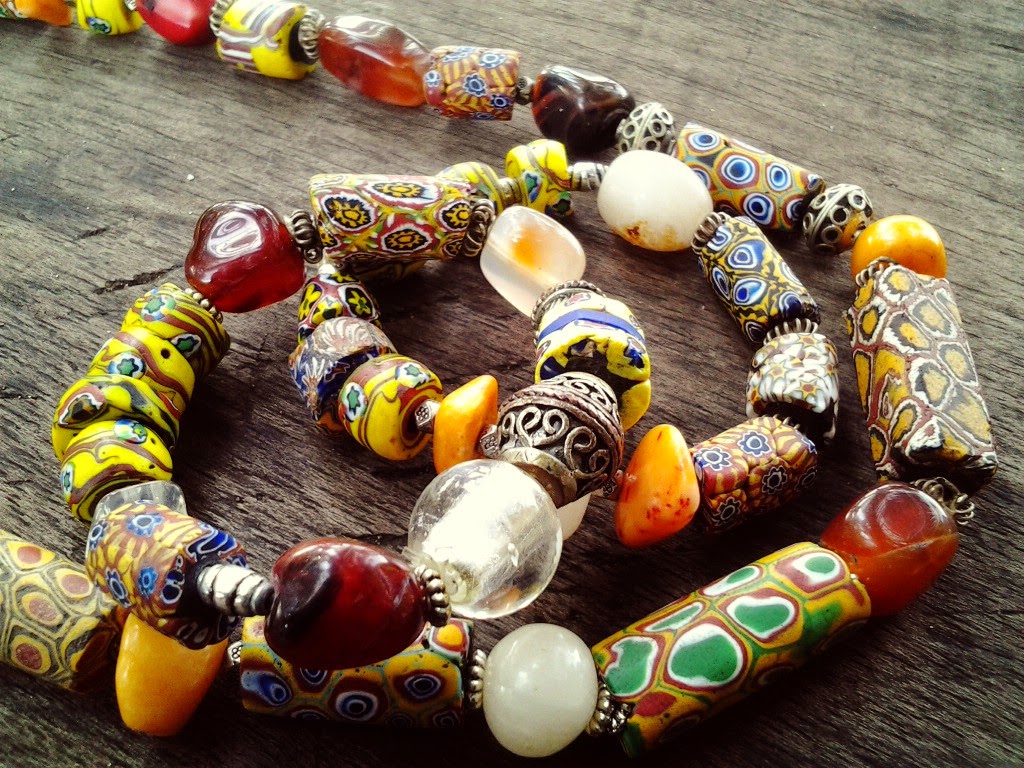
Through the society’s influence, academia has shone a beam on the subject of beads, elevating it from being mere ornamental heirlooms grandmothers pawn to send grandsons to school, but now delving into its socio-economic relevance, publishing volumes about its history and importance. Lectures by Prof. Bredwa Mensah, ‘The making of Bauxite Beads’ and ‘Beads, Copies and Imitations’ by Prof. Van Landewijk, both from the University of Ghana, Legon have been landmark references delivered on the subject.
Knowledge sharing has been the hallmark of the society, which has decimated information about various aspects of beads, bead-making techniques, archaeological finds – all ensuring the GBS becomes an important institution. From field trips to the Sesame Excavation site, and regular visits to the Dipo Festival where beads are in focus, the Koforidua Bead Market and the museum of the Archaeological Department of the University of Ghana, the GBS has worked hard to command international recognition.
The society has received visits from renowned international bead experts like the late Peter Francis Jr., who gave a lecture at the British Council Hall. Some members have even featured in films and documentaries like World on a String, an award-winning documentary by Diana Friedberg in which Ghana featured prominently.
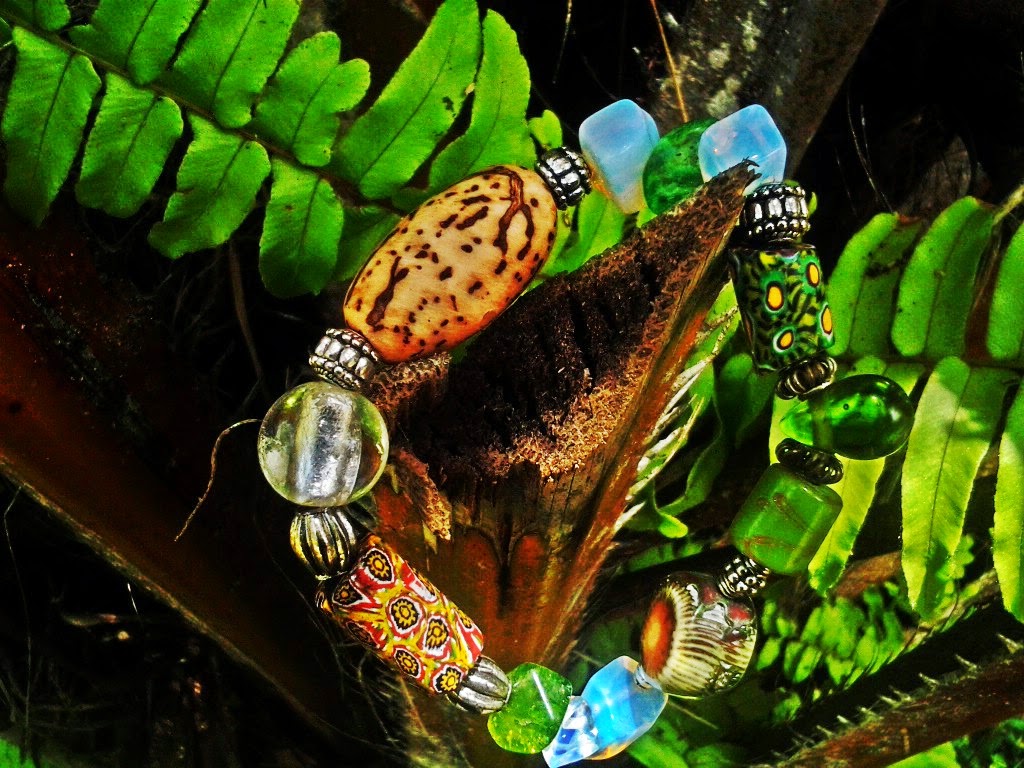
A recent grant received from the US Ambassador’s Fund for Cultural Preservation was used to refurbish the Museum of Archaeology at the University of Ghana, Legon and established a permanent display of beads, with members volunteering to organise this project which included the preservation of a valuable collection of old beads, sample cards and three important study collections. An ongoing project of cataloguing these collections of over 40,000 beads will eventually lead to a digital database that can be accessed online on the web.
COVID-19 interfered with the very functional outreach activities of the society. However, today the society is poised for more collaborative efforts to better support the beads community. Ready to share any information on the subject, the society is indeed the repository of a vast knowledge resource with the pulse on everything beads
Fin



